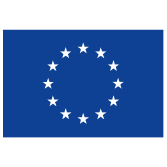The Institut Universitaire de France (IUF) aims to promote the development of high-level research in universities and to strengthen interdisciplinarity amongst its members. It was created by the decree of August 26, 1991, in the form of a service of the ministry in charge of higher education. The teacher-researchers who are appointed to form part of this community are distinguished for the excellence of their scientific activity, attested by their international influence.
Julien Laurat, University Professor from Sorbonne University, was appointed member of the IUF by order of the Minister of Higher Education, Research and Innovation dated May 26, 2022, beginning on October 1 2022 and for a period of five years.
Julien Laurat obtained his Ph.D. (2004) in quantum optics at the Université Pierre et Marie Curie (UPMC), Paris, France. After one year at the Institut d’Optique-Graduate School in Orsay and a two-year Marie Curie postdoctoral fellowship at the California Institute of Technology, he returned in 2007 to Paris. He is now Professor at Sorbonne Université and a member of the Laboratoire Kastler Brossel (SU, Ecole Normale, CNRS, Collège de France). He has been elected to the Institut Universitaire de France (IUF) in 2011. His main research interests are focused into quantum netwoking, ranging from quantum state engineering to the realization of light-matter interfaces based on cold neutral atoms. In 2012, he was awarded a Starting Grant by the European Research Council on his project: “HybridNet: Hybrid quantum networks”.
Institute Universitaire de France
The mission of the Institut Universitaire de France is to promote the development of high-level research in universities and to strengthen interdisciplinarity amongts its researchers, by pursuing three main objectives:
- Encourage institutions and teacher-researchers to excel in research, with the positive consequences that can be expected on teaching, the training of young researchers and more generally the dissemination of knowledge.
- Contribute to gender equality within the research community.
- Contribute to a balanced distribution of university research in the country, and therefore to a policy of scientific networking of the territory.




